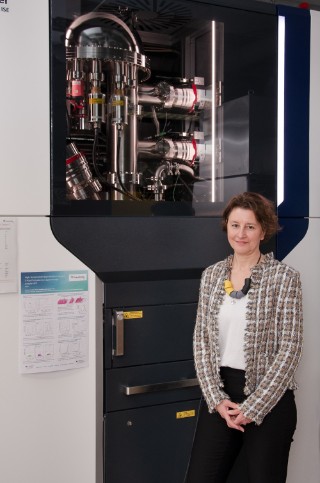News #42 / 2024
Fraunhofer Bessel Award winner Dr. Jasna Jankovic conducts research at Fraunhofer ISE

Dr. Jasna Jankovic, Associate Professor at the Institute of Materials Science and Engineering at the University of Connecticut, has been awarded the Fraunhofer Bessel Research Award by the Alexander von Humboldt Foundation. She was nominated for the award by the Fraunhofer Institute for Solar Energy Systems ISE, where she will be working as a visiting scientist from December 1. The focus of the joint research work is the development of advanced ex-situ characterization methods for state-of-the-art, innovative fuel cell and electrolyser materials.
more info